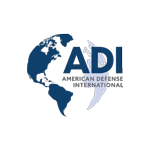Defense lobbyist on Congress, NDAA: ‘Every year is different’
The Hill | December 3, 2019 | By Ellen Mitchell
As much as things change from year to year, Michael Herson understands that when it comes to Congress, it’s just business.
The president and co-owner of American Defense International (ADI) has long stood as one of Washington’s top defense industry lobbyists, but sometimes the desires of his clients simply don’t line up with the political climate on Capitol Hill.
“The key in a lot of this is not taking things personally. I’m fortunate to have a lot of great friends on the Hill, and I understand that sometimes the answer is going to be ‘no’ when I ask to help a client.”
Through ADI, Herson lobbies for 75 clients based in six countries, including top defense contractors Raytheon, General Dynamics, BAE Systems, L3-Harris, Textron, United Technologies, Leidos, SpaceX and General Atomics.
He also counts the United Arab Emirates’s Embassy in D.C. as a client, as well as German firearms manufacturer Sig Sauer.
Currently, it’s the annual defense policy bill that takes up most of Herson’s time, as House Democrats and Senate Republicans fight over provisions in the National Defense Authorization Act (NDAA), with President Trump’s border wall a main point of contention.
While his clients don’t have conflicting wants when it comes to what is or isn’t in the NDAA — “I couldn’t represent them if they did,” Herson said — he allowed that he has “lots of issues” with what’s included and what’s been left out.
“The NDAA covers a lot of issues beyond just weapons systems. It covers health care, energy, families and schools. There’s always winners and losers; not everybody comes out as a winner every year,” Herson said.
“At the end of the day we don’t know what’s going to be in the NDAA until it comes out. Conference discussions are very closed-lip. The most important thing, really, is getting the bill done. It’s important to all my clients, it’s important to the industry and the people that we support.”
Another battle from this year: ADI lobbied for continued U.S. military aid to Yemen, where the UAE, alongside Saudi Arabia, is involved in a proxy war against Iranian-backed Houthi rebels. The effort stands in stark contrast to the agenda of most lawmakers, who have pushed for an end to American involvement in the country.
The House in April advanced a bipartisan resolution calling for an end to the U.S. role in the four-year civil war, though it was ultimately vetoed by Trump.
While Herson couldn’t comment specifically on his work with the UAE, he acknowledged that “sometimes people are going to agree with us and sometimes they’re not going to agree with us.”
“Our job is to inform and educate … If I’m pushing something Congress doesn’t agree with and we lose, OK. But eventually, hopefully we’ll be able to win in the long run.”
The ever-shifting political landscape, Herson said, keeps things interesting.
“Not only is each administration different, but I think every year is different,” he said. “We always have to advise our clients differently depending what’s going on that year, how much money is going to be spent on defense, what’s the climate, who’s in charge of the House, who’s in charge of the Senate, who has the administration [and] who the players are in the administration that are overseeing defense.”
He conceded that the Trump administration’s unorthodox approach has led to more uncertainty in the defense world compared to the Obama White House.
Democrats retaking the House in the 2018 midterm elections also caused a new ripple, with the House Armed Services Committee gaining 18 new members — a third of the 62-member panel — with whom Herson had not interacted before.
“So a lot of people we didn’t know and also of those half, the vast majority … their engagement with my clients and the rest of our industry downtown is different than it has been with members in the past.”
And of course every year brings a new budget request, which always includes unexpected changes.
“There are always surprises when the budget request comes out, which will force people to gear up on other things when certain programs aren’t funded at certain levels or programs are canceled. That starts a whole new campaign sometimes,” he said.
The end of 2019 marks ADI’s 25th year of operations.
Herson, who served in the Pentagon under former President George H.W. Bush and was an intern in the Reagan White House, has been pondering how much longer he’d like to stay in the lobbying game.
Asked how long he foresees himself at ADI, he replied, “Depends on what day of the week you ask me that question.”
“Sometimes I see myself doing it forever, and sometimes I think about going back into the government again. It would be fun to go back in the right job and the right administration to really make a difference, to have the job when you don’t need the job so you’re not afraid to make decisions.”
Herson said he is open to working at the White House, Pentagon, State Department or the United Nations, but “a lot is luck and timing. When the opportunity might present itself I might decide I don’t want to do that, but I’d like to keep that option open.”
